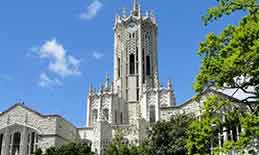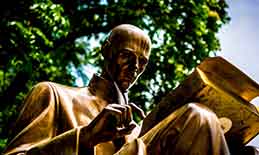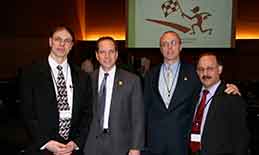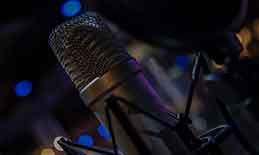Elite Mentoring
For generations, trade craft has been taught through an apprenticeship, and research is the trade craft of the Scholar. Traditionally, this is conducted by enrolling in a university program in an advanced degree under the supervision of one or more professors. Most programs consist of pre-requisite courses, a series of research related assignments for each course, and then when deemed ready by the supervisor the student begins their exploration of a given domain with the intent of finding something new and publishable. It is a process that takes time, effort and resources to complete regardless of the value of the output. Often, students are left to discover this ‘process’ for themselves and the experience can be quite daunting for even the brightest of individuals. It does not have to be this way.
__________________________
Here is what my students have to say about my program:
If you wish to develop as a researcher, to have your work published, and to expand your intellectual boundaries, then Andrew’s assistance is invaluable. - Dan
His commitment, passion, and skills as a Professor enabled me to successfully research, write and publish an article in a policy handbook and to complete my Masters. - Nicola
Andrew’s philosophy is that the best learning occurs when the teacher and student learn together, and that truly happened every week. - Desmond
Through his course, I produced a paper I’m proud of, not just because of the final result, but because of the process of unlocking multiple skills effectively. - My
Even though there are different strategies for writing and authoring, I personally find your approach as one of the best and affordable. - Ronnen
Andrew has a gift for mentoring students that I have encountered in very few academics over the near-decade I have spent studying at both undergraduate and postgraduate levels. - Courteney
Becoming a Research Scholar was the only intensive course I took at Corvinus during my study, and it really was an intense experience! :-) - Enkhzul
An important aspect of Andrew’s interactions with students is his ability to not only express complex ideas in a relatable way, but also do it in a charismatic fashion. - Robin
It is always motivating to have an enthusiastic professor who shows true passion for teaching. - Monica
Program Overview
What is being delivered is a true apprenticeship that guides the emerging scholar through a series of research activities ultimately producing an original research publication that is ready for submission to a journal, conference, workshop or book. Choose a topic from nearly any field or domain and begin a comprehensive journey.
-
Stage 1
Learning Scholarship
Teaches the learner about the first principles of research and scholarship.
-
Stage 2
Conducting Research
Assists the learner in efficiently accessing and utilizing academic literature and periodicals.
-
Stage 3
Progressing Assignments
Mentors the learner through a prescribed set of assignments that teach the foundations of academic writing, re-writing and publishing.
-
Stage 4
Problem Articulation
Supports the learner in organizing the chosen domain’s problem space and foundational issues into an objective discussion that supports the introduction of new thought, new findings, and innovations into the research domain.
-
Stage 5
Publication
Mentors the learner in crafting a publishable work and assists in getting it into an appropriate scholarly venue such as a workshop, conference, journal and/or academic book.
Learning Process
The program is tailored to the individual and consists of weekly online meetings and discussions where the learner is guided through a series of activities, assigned specific tasks to be completed before moving on to the next stage, continuously supported between discussions, and ultimately encouraged towards crafting their first scholarly publication. The basic learning process is detailed below.
-
Stage 1
Learning Scholarship
Tasks: Philosophy of Research, Ethics in Research. Problem Formulation, Research Methodologies, Language of Research
-
Stage 2
Conducting Research
Tasks: Literature Evaluation, Library Resources, Research Databases, Online Resources, Academic Books
-
Stage 3
Progressing Assignments
Tasks: Understanding a Domain, Deducing the Discussions, Establishing the Problems, Pathways Forward
-
Stage 4
Problem Articulation
Tasks: Stage 3 Refinements, Substance and Form
-
Stage 5
Publication
Tasks: Journals, Conference Proceedings, Book Chapters. Books














